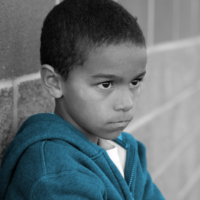ACAMH in collaboration with Child & Family Training presents a series of four online sessions on ‘Trauma informed practice in safeguarding – The provision of effective toxic stress and trauma informed responses and support for children and young people affected by abuse and neglect.’
About the sessions
The Deputy Chief Nursing Officer for England (2022) described a sharp increase in reports of domestic violence, serious violence, exploitation in many forms, including online grooming, scams, frauds, adult abuse, family poverty, mental health issues, and the consequences for families and communities. ‘These adverse experiences, represent a form of trauma which can often lead to the perpetuation of vulnerabilities, which can often lead to exploitation, violent behaviour, and abuse’. ‘What we’ve learned this year is that now, more than ever, we need to ensure we engage in trauma-informed practice’.
These four session will cover a vast amount of content related to trauma informed practice in safeguarding, all of which is from a sound evidence-base, delivered by the UK’s leading lights in the sector. The four seminars will cover different but inter-related themes. Delegates will have access to slides and recordings for 90 days after the sessions meaning if you cannot make one of the session you do not miss out. Each session will go online for delegates within 3 working days.
Seminar One: Current research – a trauma informed account of forms of maltreatment, exploitation, and adversity
- Provides an updated account of current research and safeguarding reports on the spectrum and forms of forms of maltreatment and exploitation associated with safeguarding concerns, and range of adversity which affects children’s lives and wellbeing.
- Introduces the concept of Adverse Childhood Experiences (ACEs) which has added contextual household and community stressors to basic forms of maltreatment, has significantly extended the field of research to evaluate cumulative and clustered forms of adversity, threat and deprivation on the lives of children and young people, risk and protective factors.
- Discusses recent research on forms of parenting responsible for different forms of maltreatment, abuse and neglect, and associated ACEs which result in toxic stress responses. This is complemented by a discussion of research on family and community responses which influence parenting, including intergenerational impacts of parents’ experiences of adversity, impact on early child-primary carer attachments, and the role of mentalisation, the impact of interpersonal family and community violence, and stressors including the widespread impact of the COVID pandemic.
- Provides an updated account of stress responses – positive, tolerable, and toxic stress and their ‘embedding the biological system with short- and longer-term impacts, risk “adverse experiences’, and “positive experiences’ and ‘resilience’ factors’ – “social thinning, latent vulnerabilities”; pituitary hypothalamic cortisol influences, neurobiological responses, epigenetic influences and vulnerabilities; and, immunological and inflammatory responses.
- Discusses cumulative and clustered forms of adversity – ‘Fear and Threat’ Parental Harshness, and ‘Deprivation Neglect, Poverty and Parental Separation’ converge to produce the profound long-term effects on parenting, family relationships, and life span physical and mental health responses, justifying a trauma informed approach to assessment, analysis, and decision making.
Seminar Two: The trauma informed seven-stage assessment and analysis process
- Describes the trauma informed seven-stage assessment and analysis process using a variety of individual and family assessment tools, and interactive apps
- Demonstrates:
– Trauma informed interviewing skills, including approaches to interviewing children and young people with ASD and disabilities
– Use of questionnaires and scales
– Assessing parenting and family life – HOME Inventory and Family Assessment
– Computer facilitated interviews (In My Shoes, and This Much) to elicit quantative and qualitative information directly from children, including those with disabilities, about their experiences of adversity and associated feelings
– Adaptations for children and young people with communication challenges – Children with Learning Disabilities, Autism, hearing and sight impairments
– Use of the Assessment Framework to establish a profile of Children’s Needs, Parenting Capacity, and Individual and Family strengths and difficulties, risk and protective factors, prospects for intervention and a profile for intervention.
Seminar Three: The Principles of Trauma Informed Intervention and Preventative Practice
- Describes the Principles of Trauma Informed Intervention and Preventative Practice including an awareness of how trauma impacts on individuals, families, and organisations; the need for trustworthiness, peer support, and collaboration with those who have lived experiences of trauma; shared power and decision-making; an input responsive to racial ethnic and cultural needs of different individuals.
- Presents Trauma Informed treatment approaches, reviews of current research, and what works.
- Sets out the principles of Trauma Focused CBT – the best supported approach to address the traumatic responses of children and young people.
- Presents:
– Trauma focused parenting Interventions – including ‘Parents under Pressure’ and ‘The Triple P System’, Mental Health, Alcohol and Drug Dependency, Interpersonal Violence- The Early Intervention Foundation model of intervention for the most vulnerable children, to support the family unit and strengthen family relationships to enable children to thrive and keep families together, and provide safe, nurturing environments, and Mellow Parenting
– The New Orleans Intervention Model – which makes recommendations about adoption or permanent return of children to birth parents
– Common Elements approaches. Introducing trauma-informed ‘Transdiagnostic’ approaches focused on core responses, e.g. Mansell 4Ds of distress, modular approaches for children and young people
– The Hope for Children and Families modular therapeutic procedures derived from a variety of sources, including single-focus intervention manuals, integrated into a library of modules and practice guides
– Adaptations to meet the needs of children and young people with disabilities, learning disorders and autism
– The Framework of Attachment, Regulation and Competency (ARC) Framework for residential care
– The Heart of Learning and Teaching (Wolpow 2009): Compassionate schools
– A review of Creative Arts approaches e.g. Non-verbal approaches to processing harmful experiences
– Prevention of sexual and harmful behaviour in schools and the community.
Seminar Four: An Integrated Trauma Informed Practice Approach
- Presents an Integrated Trauma Informed Practice Approach in Early Help and Safeguarding.
- Illustrates, using clinical examples, how a trauma informed practice approach in early help and safeguarding can be applied across services, to enhance adults’ and children’s wellbeing.
- Introduces training for, and implementation of, the common elements approach across the community and a variety of different types of services.
About the Speakers
Child & Family Training UK, a not-for-profit organization, was founded in 2004 to develop and promote multidisciplinary training of evidence-based approaches to assessment, analysis and intervention. Research initially funded by the DfE on common factors in therapeutic work led to the development of The Hope for Children and Family (HfCF) intervention resources.

Arnon Bentovim trained in Psychiatry at the Maudsley Hospital/ Institute of psychiatry, and as a Psychoanalyst, and systemic/ family therapist. He was involved with the management of child protection at the Great Ormond Street Hospital, and tother with colleagues established the Child Sexual Abuse Assessment and Treatment Service the first comprehensive service in the UK, and a service to assess the risk and therapeutic needs of maltreated children. He led the development of the Hope for Children and Families Intervention Resources.
David Glasgow is a clinical psychologist who worked for over 30 years in clinical and forensic settings with offenders and victims. He now works for an independent forensic practice evaluating and also undertaking investigative interviews of children and adults with a learning disability.
Carol Jolliffe has worked for Child and Family Training since 2000 and is accredited as a trainer for the range of assessment and intervention tools. She has trained for Child and Family Training in a range of social care and health settings in UK, Ireland, Egypt, Cyprus, Sweden, Germany and Hong Kong. She is currently involved in developing their family work focused training courses. She has worked with children and families in social work and children’s mental health services since 1979. She qualified as a social worker in 1986 and has worked as a practitioner and manager in children’s residential and community settings, including a duty and assessment service and a national therapeutic residential resource. Carol additionally trained as a family therapist (and is also a qualified systemic supervisor) as part of her move to children’s mental health services. She now works as a consultant systemic psychotherapist in an NHS Trust. She has a private clinical practice, offering family therapy and assessments for prospective adopters and foster carers. She teaches on family therapy and clinical psychology training courses for the Tavistock Centre and Canterbury Christchurch University.

Stephen Pizzey has been a practising social worker in the field of children’s services since 1976. He is Chair of the Board of Directors of Child and Family Training. He was the Head of the Social Work Department at Great Ormond Street Hospital for Children and shared responsibility for child protection at the hospital. He is an expert witness in cases of historical child abuse.

Jenny Gray OBE has been in children and families social work, management and policy development since 1979. Jenny joined the Social Services Inspectorate, Department of Health in 1991 and led the development of the new inspection methodologies. In 1995, she was appointed as the professional adviser to the British government on safeguarding children, firstly in the Department of Health and then in the Department for Education. Jenny held this post until September 2012. Jenny is now a social work consultant, working in both the UK and internationally. Jenny is a Child and Family Training Director and an Honorary Lecturer at UCL Great Ormond Street Institute of Child Health, London. Jenny, together with Dr Arnon Bentovim, edited the HfCF Intervention Guides for Practitioners. She delivers training both in the UK and internationally. In 2007, Jenny was awarded The Order of the British Empire and an Honorary Fellowship of the Royal College of Paediatrics and Child Health. She was President and CEO of the International Society for the Prevention of Child Abuse and Neglect from 2012 to 2014.
References
- Asmussen, K., Waddell, S., Molloy, D., & Moore, I. (2022). What works to improve the lives of England’s most vulnerable children: A review of interventions for a local family help offer. Report of Early Intervention Foundation.
- Bentovim, A., & Elliott, I. (2014). Targeting Abusive Parenting and the Associated Impairment of Children. Journal of Clinical Child & Adolescent Psychology. DOI:10.1080/15374416.2013.869748
- Bentovim, A. & Gray, J. (2015). Eradicating Child maltreatment. London: Jessica Kingsley Publishers.
- Bentovim, A., & Gray, J. (Eds.). (2016; 2017). Hope for Children and Families Intervention Resources. York: Child and Family Training.
- Bentovim, A., Vizard, E., & Gray, J. (2018). Editorial perspective: Treatment of complex maltreatment – beyond the NICE guideline? Manuals, muddles or modules. Child and Adolescent Mental Health, 23, 297-300. https://doi.org/10.1111/camh.12280
- Bentovim, A., Chorpita, B., Daleiden, E., Gray, J., Pizzey, S., & Vizard, E. (2022). The value of a modular, multi-focal, trauma-informed therapeutic approach to preventing child maltreatment: Hope for Children and Families Intervention Resources. Child Abuse and Neglect, 119. https://doi.org/10.1016/j.chiabu.2020.104703
- Bellis, M., Wood, S., Hughes, K. et al. (2023). Tackling Adverse Childhood Experiences (ACEs) State of the Art and Options for Action. Wrexham: WHO Collaborating Centre on Investment for Health and Well-being, Public Health Wales.
- Blaustein, M., & Kinniburgh, K. (2018). Treating traumatic stress in children and adolescents: How to foster resilience through attachment, self-regulation, and competency (2nd ed.). New York: Guilford Press.
- Calam, R.M., Cox, A.D., Glasgow, D.V., Jimmieson, P. & Groth Larsen, S. (2000). ‘Assessment and therapy with children: can computers help?’ Child Clinical Psychology and Psychiatry, 5, 3, 329–343.
- Chorpita, B.F., & Weisz, J.R. (2009). Modular Approach to Children with Anxiety, Depression, Trauma and Conduct Match-ADTC. Satellite Beach FL: PracticeWise.
- Chorpita, B.F., Daleiden, E.L., Park, A.L., Ward, A., Levy, M.C., Cromley, T., Chiu, A.W., Letamendi, A.M., Tsai, K.H., & Krull, J.L. (2017). Child STEPs in California: A Cluster Randomized Effectiveness Trial Comparing Modular Treatment With Community Implemented Treatment for Youth With Anxiety, Depression, Conduct Problems, or Traumatic Stress. Journal of Consulting and Clinical Psychology, 85(1), 13–25. https://doi.org/10.1037/ccp0000133
- Finkelhor, D., Omrod, R.K, & Turner, H.A. (2007). Polyvictimisation: a neglected component in child Abuse and Neglect. Child Abuse and Neglect, 31, 7–26.
- Finkelhor, D., Turner, H.A., Shattuck, A. & Hamby, S.L. (2015). Prevalence of childhood exposure to Violence, Crime and Abuse: Results from the National Survey of Children’s Exposure to Violence. JAMA Pediatrics, 169(8), 746–54.
- Macdonald, G., Livingstone, N., Hanratty, J., McCartan, C., Cotmore, R., Cary, M., … & Churchill, R. (2016). The effectiveness, acceptability and cost-effectiveness of psychosocial interventions for maltreated children and adolescents: an evidence synthesis. Health Technology Assessment, 20(69), 1–508.
- NSPCC (2023). Child Mental Health: recognising and responding to issues.
- Pizzey, S., Cox, A., Bingley Miller, L. & Walker, S. (2009). Assessing Parenting and the Family Life of Children using Standardised Assessment Tools. York: Child and Family Training.
- Pizzey, S., Bingley Miller, L., Cox, A. & Bentovim, A. (2011). Assessment, Analysis, Planning Interventions and Identifying and Measuring Outcomes. York: Child and Family Training.
- Pizzey, S., Bentovim, A., Bingley Miller, L., Cox, A. and Tapp, S. (2015, 2016, 2017) The Safeguarding Children Assessment and Analysis Framework: User Guide. York: Child and Family Training.
- Pizzey, S., Bentovim, A., Bingley Miller, L. and Cox, A. (2017) Evidence‐Based Assessments of Children and Families: Safeguarding Children Assessment and Analysis Framework. In Dixon, L., Craig, L., Perkins, D. and Hamilton-Giachritsis, C. (eds.) What Works in Child Protection: An Evidence-Based Approach to Assessment and Intervention in Care Proceedings. London: John Wiley & Sons Ltd.
- Pizzey, S., Roberts R., Gray J., & Bentovim A., (2022). Training Newly Qualified Social Workers: Evaluation of an evidence-based training and coaching programme. Children Rights Journal of Rawalpindi Medical University (CRJRMU), 2(1), 7–2.
- Segal, L., & Amos, J. (2023). The serious health consequences of abuse and neglect in early life, British Medical Journal, 381. p930 DOI:10.1136/bmj.p930
- Van IJzendoorn, M.H., Bakermans-Kranenburg, M.J., Coughlan, B. & Reijman, S. (2020). Umbrella synthesis of meta-analyses on child maltreatment antecedents and interventions. JCPP; 61(3) 272–290.
- Wolpow, R. & Johnson, M.A. (2009). The Heart of Learning and Teaching: Compassion, Resiliency, and Academic Success. Washington: State Olympia.

